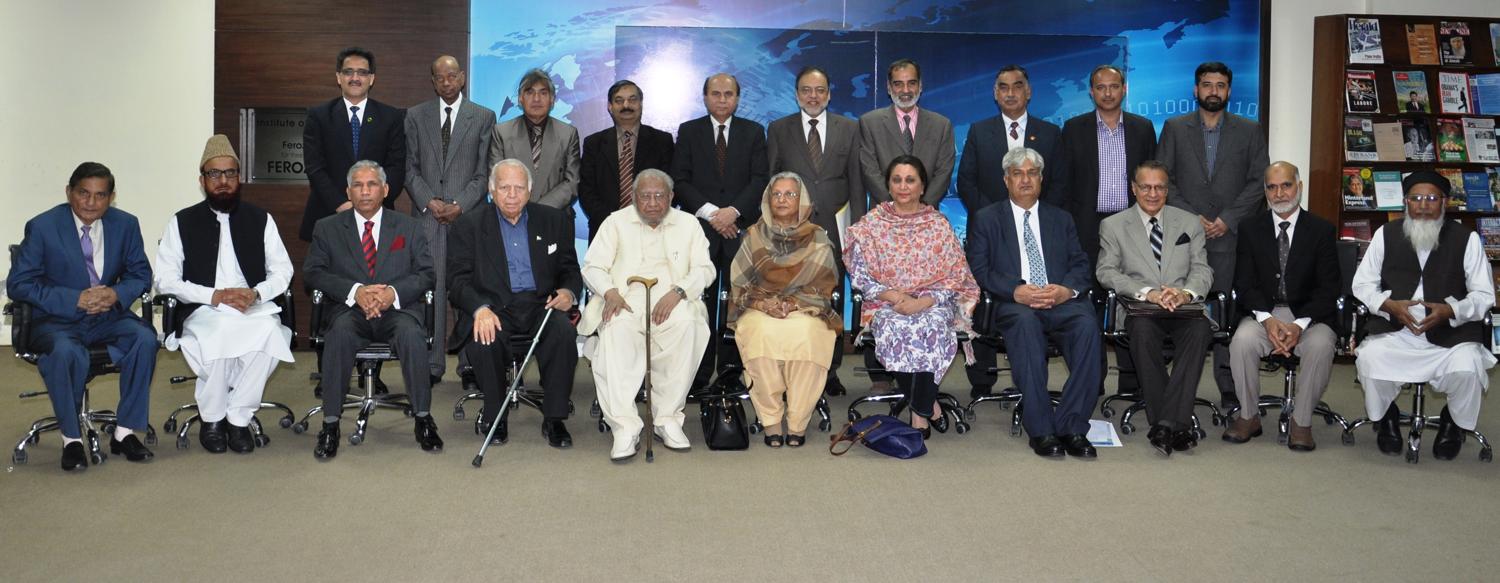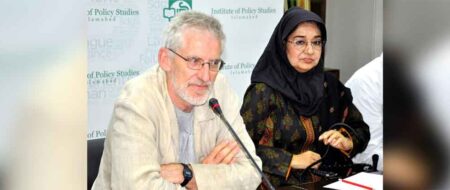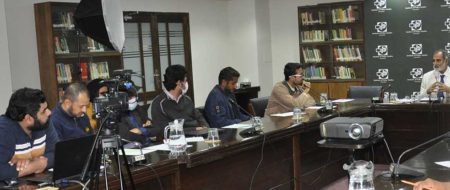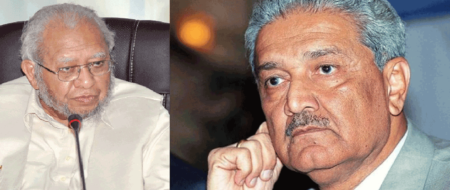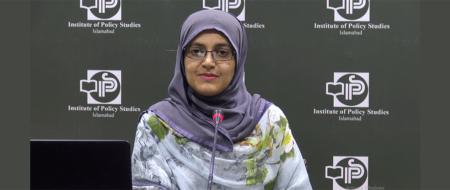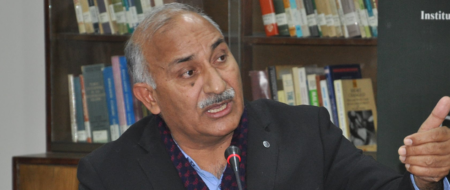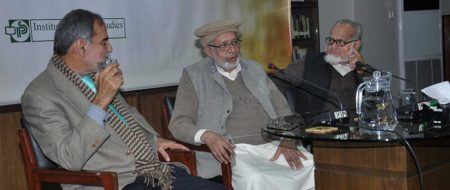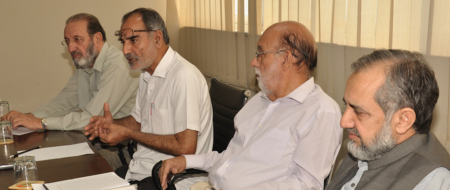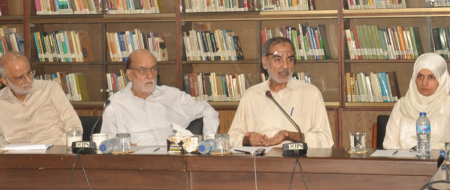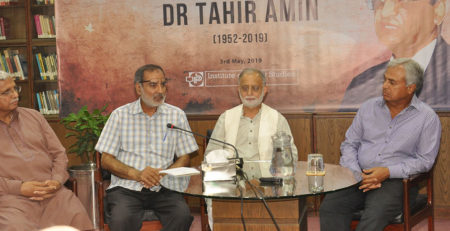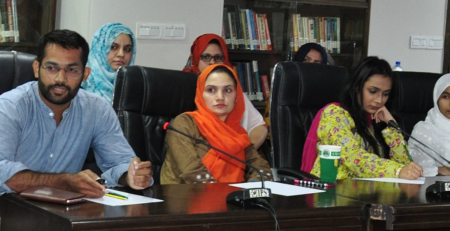National Academic Council meeting – 2014
The National Academic Council of the Institute of Policy Studies, Islamabad, identified weak governance and decline of state institutions as the root cause of the existential threats and challenges Pakistan was faced with currently, and saw burning issues like terrorism, poverty, lawlessness, corruption, and increased foreign intervention and influence on policy level as their overwhelming symptoms. In the present scenario, and to safeguard the nation’s future, the NAC viewed, it was critical that while addressing the symptoms the root causes should also be dealt with holistically.
It may be mentioned that IPS-NAC governs the research program of the Institute and meets at least once a year.
The current meeting held on 15 March 2014 was presided by Professor Khurshid Ahmad, chairman, IPS, and was attended by Khalid Rahman, DG-IPS, M. Akram Zaki, former secretary general, ministry of foreign affairs, Ambassador (r) Rustum Shah Mohmand, Abdul Hameed, Chairman, Pakistan Academy of Letters, General (r) Ehsan ul Haq, former chairman, Joint Chiefs of Staff Committee, Mirza Hamid Hasan, former secretary, ministry of water and power, Dr. Hasan Sohaib Murad, rector, University of Management & Technology, Lahore, Prof. Dr. Javeid Iqbal, vice chancellor, University of Baluchistan, Prof. Mufti Munib-ur-Rehman, president, Tanzeem-ul-Madaris Ahle Sunnat Pakistan and chairman Ruet-e-Hilal Committee, Dr. Muhammad Mukhtar, vice chancellor, Islamia University Bahawalpur, Dr. Nazir A. Mughal, vice chancellor, University of Sindh, Prof. Dr. Sara Safdar, member, Public Service Commission of Pakistan, Shamshad Ahmad Khan, former secretary, ministry of foreign affairs, Zahid Malik, editor-in-chief, Pakistan Observer, Prof. Dr. Zahoor Ahmad Swati, vice chancellor, University of Agriculture, Peshawar, Maulana Zahid ul Rashdi, member Wifaq ul Madaris Arabia, Dr. Adnan Sarwar, chairman, department of International Relations, University of Peshawar, Major General (r) Akbar Saeed Awan, Amanullah Khan, chairman, Neutech Group & former president Rawalpindi Chamber of Commerce & Industry, Air Cdr (r) Khalid Iqbal, Riyazul Haque, former member, National Tariff Commission, and Barrister Saadia Abbasi, former senator.
The meeting underscored the need for improvement in the higher education sector of the country, both quantitatively and qualitatively, and discussed at length the possible ways to build and strengthen links between applied research and policy choices in Pakistan.
The discussants also stressed that it was critical to improve governance at all levels of the state and arrest and reverse the institutional decline in the country, which was being caused by high levels of political insecurity and volatility which prompts short-term, highly politicized decision making rather than evidence-based choices and policy. Even the impact of the existing applied research being produced in the universities and think tanks of Pakistan – vis-à-vis issues of critical national importance – was feeble because policy makers generally do not have the capacity to benefit from it and also do not have the incentives to develop functional networks with researchers and research organizations, it stressed.
The meeting also discussed that the federal, provincial and local governments can benefit a lot by promoting and facilitating policy research in the country and incorporating the role of think tanks and universities in the policy making process for improved governance and better, meaningful planning for the country’s future.
Prof Khurshid Ahmad, in his concluding remarks, said that while Pakistan was faced with numerous internal and external challenges, a strategic approach should be adopted by identifying the priorities and working toward their solution. He termed the issues related to governance as critical ones for the country’s growth and progress, and urged to develop and project a strong narrative to improve the country’s image internationally.
| |
| |


